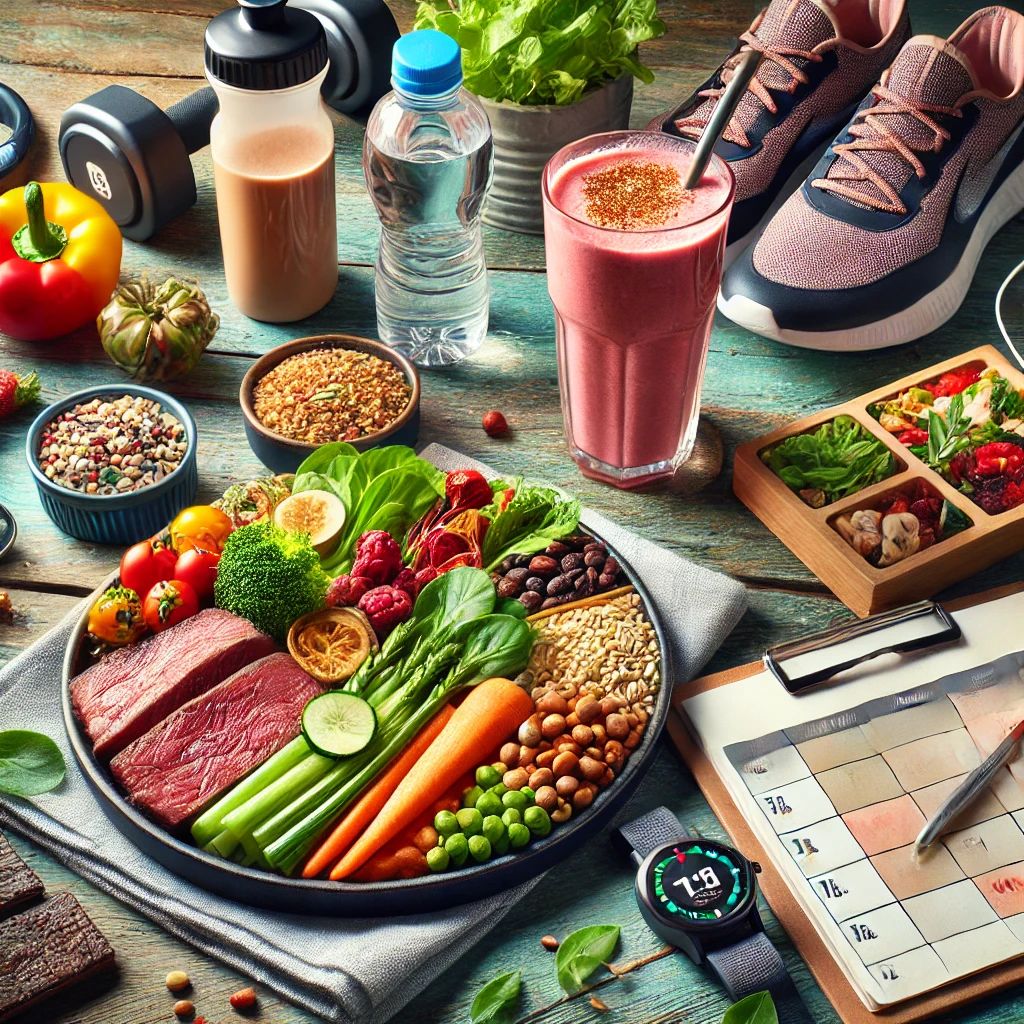
Why Nutrition Matters for an Active Lifestyle
Maintaining an active lifestyle requires proper nutrition to fuel your body, support recovery, and optimize performance. Whether you’re an athlete, a fitness enthusiast, or simply someone who enjoys staying active, the right nutrition can make all the difference. Here’s a guide to fueling your body for energy, endurance, and overall well-being.
1. Balance Your Macronutrients
Prioritize Protein
Protein is essential for muscle repair and growth.Include lean protein sources like chicken, fish, eggs, tofu, and legumes in every meal.Aim for 1.2–2 grams of protein per kilogram of body weight daily, depending on activity level.Choose Quality Carbs
Carbohydrates provide the energy you need for workouts and daily activities.Opt for complex carbs like whole grains, quinoa, oats, sweet potatoes, and fruits.Time your carb intake around workouts for maximum energy and recovery.Incorporate Healthy Fats
Fats support hormone production and long-lasting energy.Include sources like avocados, nuts, seeds, and olive oil in your diet.2. Hydrate Properly
Stay Ahead of Dehydration
Drink water consistently throughout the day, especially before, during, and after exercise.Dehydration can lead to fatigue, decreased performance, and muscle cramps.Consider Electrolytes
If you engage in intense or prolonged activities, replenish electrolytes lost through sweat with drinks containing sodium, potassium, and magnesium.Monitor Your Intake
Use your urine color as a hydration indicator: light yellow is optimal.3. Fuel Your Workouts
Pre-Workout Nutrition
Eat a small meal or snack 1–3 hours before exercising, focusing on carbs and protein.Examples: A banana with peanut butter, Greek yogurt with granola, or a turkey sandwich on whole-grain bread.Post-Workout Recovery
Replenish glycogen stores and repair muscles within 30–60 minutes after exercise.Combine protein and carbs in a 1:3 or 1:4 ratio. Examples: A protein shake with a piece of fruit or grilled chicken with quinoa.4. Optimize Meal Timing
Frequent Meals and Snacks
Eating small, balanced meals every 3–4 hours can maintain energy levels throughout the day.Include nutrient-dense snacks like trail mix, hard-boiled eggs, or hummus with veggies.Nighttime Nutrition
If you work out late, a light meal with protein and healthy fats can support recovery while promoting restful sleep.5. Tailor Nutrition to Your Activity Level
For Endurance Activities
Long-distance runners or cyclists should focus on carb-loading before events and consuming quick-digesting carbs during workouts.Energy gels, bananas, or sports drinks are effective for extended activities.For Strength Training
Increase protein intake to support muscle building and repair.Focus on post-workout recovery with a combination of protein and carbs.For Active Daily Lifestyles
Even light activities like walking or yoga benefit from balanced nutrition that includes all macronutrients.6. Supplement Smartly
Protein Powders
Useful for meeting daily protein needs, especially after workouts.Choose high-quality options like whey or plant-based proteins.Vitamins and Minerals
Active individuals may need additional vitamin D, magnesium, or iron. Consult with a healthcare professional before supplementing.Avoid Over-Reliance
Prioritize whole foods over supplements for the majority of your nutrients.7. Common Nutrition Mistakes to Avoid
Skipping Meals: Leads to energy crashes and poor performance.Underestimating Calorie Needs: Active individuals often need more calories to fuel their activities and maintain muscle.Ignoring Recovery: Failing to eat after workouts can delay muscle repair and lead to fatigue.Overeating Processed Foods: Stick to nutrient-dense options for sustained energy.Conclusion: Fuel Your Active Lifestyle
An active lifestyle demands thoughtful nutrition to support energy, performance, and recovery. By balancing macronutrients, staying hydrated, and tailoring your diet to your activity level, you can achieve your fitness goals while maintaining overall health. Start making small changes today to fuel your body and maximize your potential.
The article was prepared by Hubert Lam.



